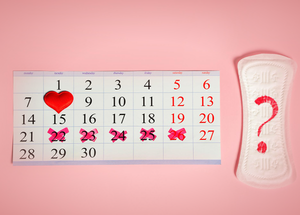Many women notice a frustrating pattern: skin looks calm some weeks but breaks out suddenly before periods. This is not random; it is your hormones at work. Acne during the menstrual cycle is a well-studied phenomenon. By learning how estrogen and progesterone affect your skin, you can anticipate flare-ups and adjust your skincare routine accordingly.
Hormones are central to cycle-related acne. Estrogen generally supports healthy skin by maintaining hydration and reducing sebum (oil) production. Progesterone, which rises after ovulation, can make the skin swell slightly and trap oil in pores. Meanwhile, androgens (like testosterone) stimulate sebaceous glands, leading to excess oil.
This balance explains why some women develop breakouts, particularly in the days before their period when progesterone and estrogen drop, leaving androgens unopposed.
For women with persistent or severe acne, dermatologists may suggest:
It is always best to consult a dermatologist before starting these therapies.
Not every breakout requires medical treatment. However, you should see a dermatologist if:
Acne during your cycle is not a flaw; it is a response to hormonal shifts. The good news is that by recognizing patterns, you can take proactive steps. Gentle, consistent skincare paired with lifestyle support reduces flare-ups, while medical treatment is available for stubborn cases. Understanding your skin’s rhythm helps you move from frustration to control, one cycle at a time.
About PeriodSakhi
PeriodSakhi is your trusted companion for understanding your menstrual health. With easy-to-use tools, it helps you track your periods, ovulation, fertility, moods, and symptoms, while providing insights into your overall reproductive and hormonal health. PeriodSakhi also serves as a supportive online community where women can share experiences, find reliable information, and access expert-backed guidance on menstrual health, PCOS, pregnancy, lifestyle, and more.
Disclaimer
The views, thoughts, and opinions expressed in this article/blog are solely those of the author and do not necessarily reflect the views of PeriodSakhi. Any omissions, errors, or inaccuracies are the responsibility of the author. PeriodSakhi assumes no liability or responsibility for any content presented. Always consult a qualified medical professional for specific advice related to menstrual health, fertility, pregnancy, or related conditions.
Start the conversation
No comments yet. Start the conversation by leaving the first comment!





